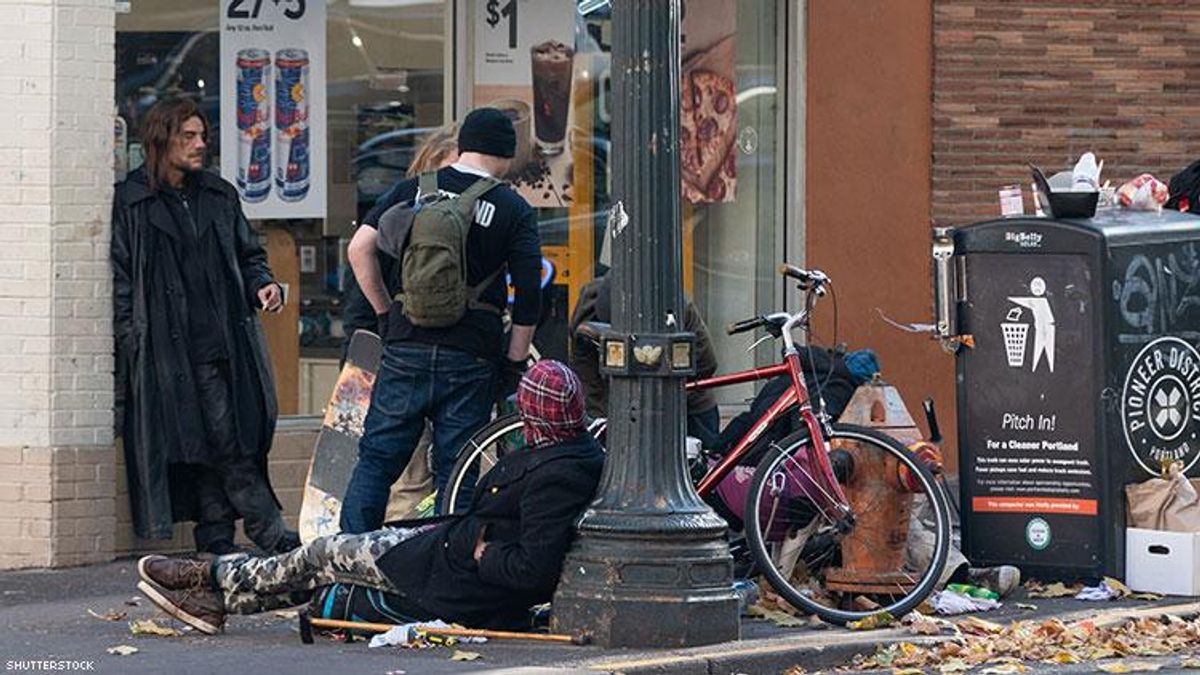Treatment
Homelessness And Income Inequality Are Driving HIV Rates in Portland

Homelessness, income inequality, and addiction have fueled the dangerous uptick of STIs in the area — including a spike in HIV diagnoses.
July 10 2019 6:00 AM EST
By continuing to use our site, you agree to our Privacy Policy and Terms of Use.

Homelessness, income inequality, and addiction have fueled the dangerous uptick of STIs in the area — including a spike in HIV diagnoses.
Government officials, health care providers, and various community groups in Multnomah County, Ore., are coping with an alarming upsurge in new cases of HIV, syphilis, and other sexually transmitted illnesses. According to reports, income inequality, addiction, and limited access to health care have contributed to what is the largest outbreak in recent years.
As is often the case, the hardest hit segments of the population are those from marginalized segments of the community, including sex workers, those suffering from serious addiction, and people experiencing homelessness.
“We don’t know yet if this is a short-term increase or longer-term trend,” Dr. Jennifer Vines, Multnomah County Deputy Health Officer, said in statement. “The hope is that more testing will link people to the care they need and stop the spread to others.”
But trend is not limited to Oregon. Seattle King County public health officials have tracked a similar rise among at-risk groups, as have officials in Ohio, Tennessee, and Massachusetts. In a significant number of cases, the reporting parties were either intravenous drug users or persons who had recent sexual contact with an IV drug user.
Complicating matters further for Multnomah officials is that nearly half of these new cases involve homelessness. The intersectionality of addiction and homelessness makes providing adequate testing and treatment especially difficult. This is especially true in situations where addiction and lack of housing make adhering to a treatment regimen next to impossible for some.
“People can live long and healthy lives with HIV, but managing a chronic disease is hard work,” said Kim Toevs, Multnomah County’s Director of Communicable and Sexually Transmitted Diseases.
PrEP has proven highly effective in preventing new infections, and providers at the Multnomah County STD Clinic routinely prescribe the medication. The drug is included in the Oregon Health Plan with no out-of-pocket expenses for the insured. For those not covered or who can’t afford the expense, there are people like Tim Criswell, an insurance navigator at the clinic, to help steer patients into a financial assistance plan to eliminate those costs.
Still, any treatment is only effective if followed as directed and with proper monitoring and supervision. For people experiencing homelessness or a serious addiction, it is often difficult or impossible to meet with a provider much less be able to follow a daily regimen of medication and healthy living.
“It’s a lot of schedule-following that can be really hard for someone in the chaotic stages of drug use,” said Julie Lukesh, a coordinator at the Multnomah County Harm Reduction Clinic. “But the biggest barrier is not having a safe place to keep medication.”
The Multnomah County Harm Reduction Clinic serves people who use and inject drugs. They deal not just with addiction, but also provide medical care, social services, exchange needles, and enroll patients in the Oregon Health Plan. Ideally, people living with HIV would be able to find the treatment they need and be able to maintain the regimen. A good place to start is testing and PrEP.
“I would love to see more people interested in PrEP and help them with adherence,” said Lukesh in another statement on the county's site. “It’s one more way for people to get connected or reintroduced to continuous care.”
The spike in new cases of HIV, especially among the homeless and IV drug-using communities, has raised alarm bells in Multnomah County. The uptick mirrors similar situations across the country.
Local government officials and health care providers and advocates have the tools in place to respond, but are battling an intersectionality of issues that present challenges to providing adequate and sustained care. But with drugs like PrEP and a strong network of government and community support, the crisis is being met with a concerted effort backed by science and the determination of dedicated workers.